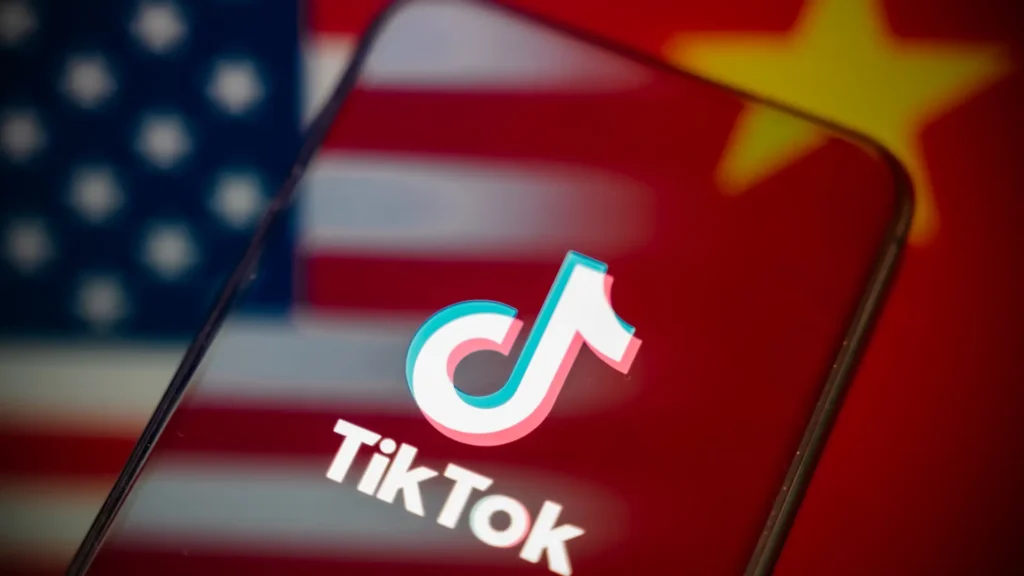The TikTok US ownership deal is making headlines worldwide as China and the United States reach a framework agreement concerning the future of TikTok’s operations in the United States. U.S. Treasury Secretary Scott Bessent announced the development on Monday, marking a critical step in resolving ongoing tensions surrounding the popular social media platform. This deal could potentially pave the way for American ownership, a move that has been long debated among lawmakers, tech experts, and the public.
Understanding the Background of the TikTok Controversy
The TikTok US ownership deal comes after years of intense scrutiny over the social media platform. TikTok, owned by the Chinese technology giant ByteDance, has become one of the most widely used apps in the world. Its short form video content has captured millions of users, particularly in the United States. Despite its popularity, concerns over national security have dominated discussions about the app’s presence in the U.S.
Officials and lawmakers have raised fears that the Chinese government could access sensitive American data through TikTok. These concerns intensified amid global tensions between the two nations, prompting calls for either a complete ban or divestment of the platform from Chinese ownership. While TikTok has consistently denied these claims and emphasized its commitment to data privacy, the debates surrounding its operation persisted.

What the Framework Deal Entails
The framework deal addresses the primary concerns that have led to tensions over TikTok. While the full details are still being finalized, key elements have been outlined:
Ownership Transition: The deal envisions TikTok moving under American ownership or at least significant U.S. based control. This change is intended to reduce the influence of Chinese interests over the platform.

Data Security Measures: As part of the agreement, TikTok’s U.S. user data would be stored on secure domestic servers. This ensures that all sensitive information is protected under U.S. jurisdiction, alleviating fears of foreign access.
Algorithm Licensing: One of the platform’s key features is its recommendation algorithm. The agreement allows ByteDance to license the algorithm to the new U.S. controlled entity. This ensures TikTok can continue offering the same engaging experience to users while satisfying national security requirements.
Treasury officials have emphasized that the deal involves private companies negotiating terms, but the framework sets the stage for compliance with government requirements. The U.S. administration has described the agreement as a path forward that protects both user security and the integrity of the platform.
Implications for the United States
For the U.S., the TikTok US ownership deal could be a major win in terms of national security and tech sovereignty. By transitioning the platform to American control and storing sensitive data domestically, the country can better manage risks associated with foreign ownership.
This deal may also create a precedent for how the U.S. handles other foreign owned technology companies in the future. By balancing security concerns with economic and social considerations, it shows a willingness to collaborate with private sector entities to resolve complex issues.
Additionally, American users of TikTok can continue using the app without interruptions. For millions who rely on TikTok for entertainment, social connection, and even business promotion, this agreement ensures the platform remains operational and engaging.
Implications for China
For China, the deal represents both a challenge and an opportunity. On one hand, ByteDance may have to reduce its direct control over TikTok’s U.S. operations, which could be perceived as a concession under pressure from U.S. authorities. On the other hand, licensing the recommendation algorithm allows the company to retain some influence over the platform’s core technology.
This arrangement ensures that ByteDance remains connected to TikTok’s success while complying with the requirements of U.S. regulations. It also signals China’s willingness to negotiate and adapt in response to global market pressures, a critical factor in maintaining its tech industry’s international presence.

Implications for TikTok Users
For the millions of users in the United States, the TikTok US ownership deal is likely to provide stability. Users can continue accessing their favorite content without major disruptions. The app’s features, including its personalized video recommendations and community interaction tools, are expected to remain largely unchanged.
This continuity is particularly important for content creators who rely on TikTok for income and engagement. By addressing security concerns without undermining the platform’s functionality, the deal aims to satisfy both regulatory demands and user expectations.
Economic and Business Implications
The agreement has broader implications for business and investment. A U.S. controlled TikTok opens doors for American investors, technology companies, and advertisers. It also demonstrates the potential for international tech companies to navigate complex geopolitical landscapes without entirely leaving key markets.
For ByteDance, maintaining a stake through algorithm licensing preserves revenue opportunities while complying with foreign regulatory requirements. Meanwhile, American investors and companies could benefit from increased access to one of the most lucrative and innovative social media platforms globally.
Challenges Ahead
While the framework deal is a major step forward, significant challenges remain before full implementation:
Regulatory Approvals: Both U.S. and Chinese authorities will need to approve the deal. The negotiation process may be lengthy and involve additional compliance requirements.
Public Perception: Both countries must manage public concerns about data security, privacy, and corporate influence. Transparent communication and visible safeguards will be critical to maintaining trust.
Operational Enforcement: Ensuring that data storage and algorithm licensing arrangements are followed precisely will require ongoing monitoring and enforcement. Any missteps could reignite debates about TikTok’s safety.
Technological Adjustments: Transferring ownership and operational control involves significant technical and logistical challenges. Integrating secure servers, maintaining algorithm functionality, and ensuring a seamless user experience will require careful planning.
Broader Implications for Global Tech
The TikTok deal may also influence how other countries approach foreign owned tech companies. As nations increasingly focus on data sovereignty and digital security, the agreement could serve as a blueprint for negotiating with multinational tech corporations.
It demonstrates that geopolitical concerns and commercial interests can coexist when managed strategically. Companies operating across borders may find new models for structuring ownership, licensing technology, and ensuring compliance with diverse regulations.

The Role of Leadership
Political leadership on both sides has played a key role in reaching the framework agreement. High level discussions and ongoing diplomatic engagement have created an environment conducive to negotiation. The involvement of presidents and treasury officials underscores the importance of technology in global diplomacy.
As the deal moves toward finalization, continued leadership oversight will be essential. Ensuring that both governments honor the agreement and maintain transparent communication with the public will be critical to its long term success.
Future Outlook
The TikTok US ownership deal signals a potential turning point in the tech industry. If successfully implemented, it may establish a framework for handling foreign owned digital platforms while addressing national security concerns.
For TikTok, the deal offers the chance to maintain growth, innovation, and global presence. For the U.S., it represents an opportunity to secure data, foster domestic investment, and regulate foreign technology without stifling innovation. For China, it allows for continued participation in a major international market while complying with foreign regulations.
Looking ahead, the successful execution of this agreement could reshape how countries, companies, and users interact with global technology platforms. It may also provide lessons for other multinational digital companies navigating complex regulatory and political landscapes.
Conclusion
The framework agreement between China and the United States over TikTok’s future represents a landmark moment in the intersection of technology, business, and international relations. The TikTok US ownership deal addresses core issues of national security, data privacy, and operational continuity while opening pathways for collaboration and innovation.
Although challenges remain, the agreement highlights the potential for diplomacy and strategic negotiation to resolve complex problems in the digital era. As the final steps toward implementation unfold, the world will be watching closely, recognizing that TikTok’s future could set a precedent for managing global technology operations in the years to come.
In essence, this deal not only affects the millions of users who engage with TikTok daily but also shapes broader discussions about digital sovereignty, international business strategy, and the evolving relationship between the United States and China.
Do follow UAE Stories on Instagram
Read Next – Global Village Season 30 VIP Packs Launch with $8,200 Prize Draw












